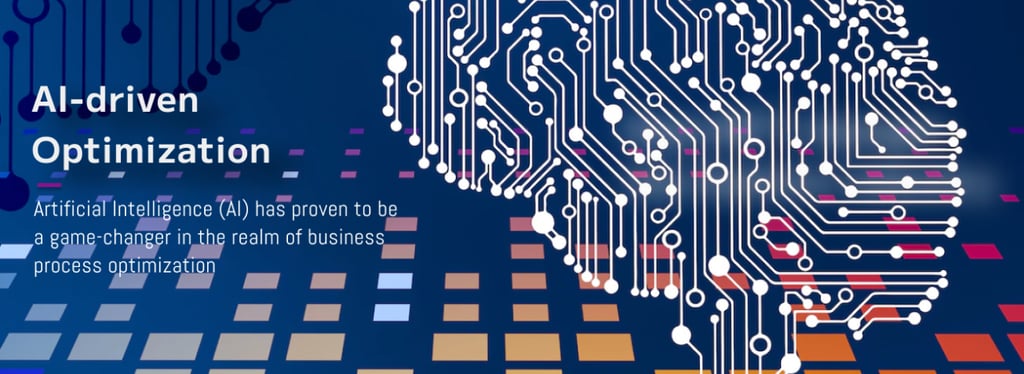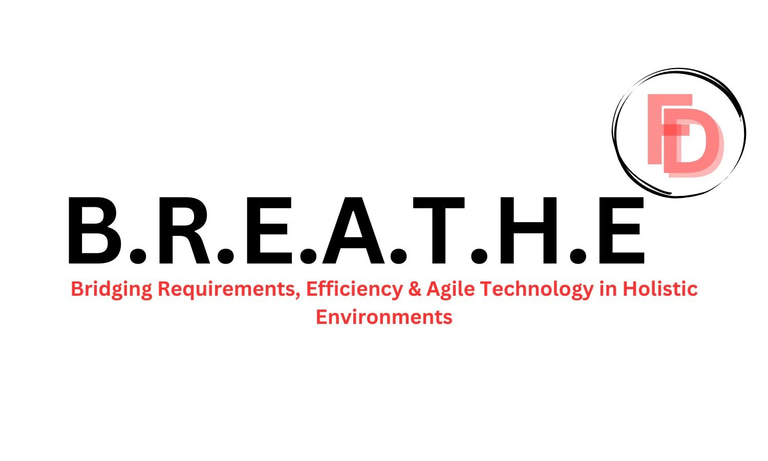AI-Powered Business Process and Integration, for Efficient Short Time Value-to-Market
AI-Powered Business Process and Integration for Efficient Short Time Value-to-Market
Fafure David
12/28/20243 min read


Artificial Intelligence is no longer a myth, a thought or concept of the future; it is here with, here to stay, and it has become a very powerful tool for reshaping how businesses are modelled or engineered.
AI-powered business process optimization and integration are pivotal for any organization (s) striving to get the best value, reduce time-to-market, while at the same time, maintaining high operational efficiency. By embedding AI into systems like SAP, companies achieve a seamless, automated, and intelligent ecosystem that supports growth, innovation, and rewarding competitive advantage. This approach will not only streamline operations but also positions businesses to adapt quickly in dynamic & evolving markets.
In the modern business landscape, AI plays a transformative role in enhancing business processes, driving integration across systems, and optimizing operations for faster value-to-market.
1. AI in Business Process Optimization
AI technologies, such as machine learning, natural language processing, and robotics, are revolutionizing business process optimization by automating repetitive tasks (e.g., invoice processing, data entry) reducing human errors thereby speeding up operations. This is evident in Robotic Process Automation (RPA) which automates procurement workflows, significantly reducing cycle times.
We can also see its use in how we leverage on predictive analytics that enables us make proactive decisions based on historical data. Example is seen in real-time forecasting of demand for optimization of inventory levels that can aid in reducing overstock or understock of materials.
2. Integration Across Business Systems
The operation of intelligent APIs, data interoperability, and event-driven architecture is needed for efficient integration across disparate systems is crucial for seamless operations. The APIs connect the ERP systems (like SAP, Oracle) with other business platforms, ensuring smooth data flow; AI tools standardize data through cleaning from multiple sources, ensuring data consistency across the integrated systems, these can aid real time communication and handshake between systems using event-based triggers.
3. Efficient Optimization Through AI
AI optimizes processes by identifying inefficiencies and recommending improvements through process mining, resource allocation and continuous improvement (smoothening). The workflows tools can be used to identify bottlenecks, analyze the challenges, and suggest/provide optimal paths, (example is identifying delays in order processing and rerouting tasks for faster execution). Allocation of resources (human, financial and/or material) is also made possible & easy.
4. Short time value-to-Market
The use of AI can accelerate the value time-to-market for products and services through the use of rapid prototyping, agile product development or supply chain optimization.
AI can be used to design prototype products faster through the simulation of performance & user feedbacks, it is also possible by integrating agile project management tools that enhances spring planning & prioritization. The concept of Just-in-time manufacturing is made possible by optimizing the supply chain process for better efficiency.
5. Real-World Application for Business Integration (AI in SAP)
SAP leverages AI-powered solutions to optimize business processes and reduce time-to-market.
SAP AI Core, enables embedding AI models into core SAP applications (e.g., SAP S/4HANA) for intelligent decision-making.
SAP Intelligent RPA, automates repetitive tasks, such as invoice validation and goods receipt posting.
SAP Integration Suite, uses AI-driven APIs for seamless integration across SAP and non-SAP systems, ensuring smooth data flow.
SAP Business Technology Platform (BTP), provides AI tools to enhance predictive analytics and process mining for continuous optimization.
It is possible to have few challenges and bottlenecks, but the following solutions can also be applied for efficient process.
Data Silos
AI-powered data integration tools unify disparate systems.
Resistance to Change
AI-driven change management tools improve adoption rates.
Scalability
Cloud-based AI platforms ensure scalability for growing businesses.
High Initial Investment
ROI-focused AI pilots showcase quick wins to justify expenses.
Benefits of AI-Powered Business Process Optimization
Efficiency - AI automates manual tasks, reducing costs and human errors.
Agility - real-time decision-making enables faster responses to market changes.
Scalability - AI solutions grow with business needs, ensuring long-term value.
Customer Satisfaction - enhanced processes deliver better products and services to customers.
